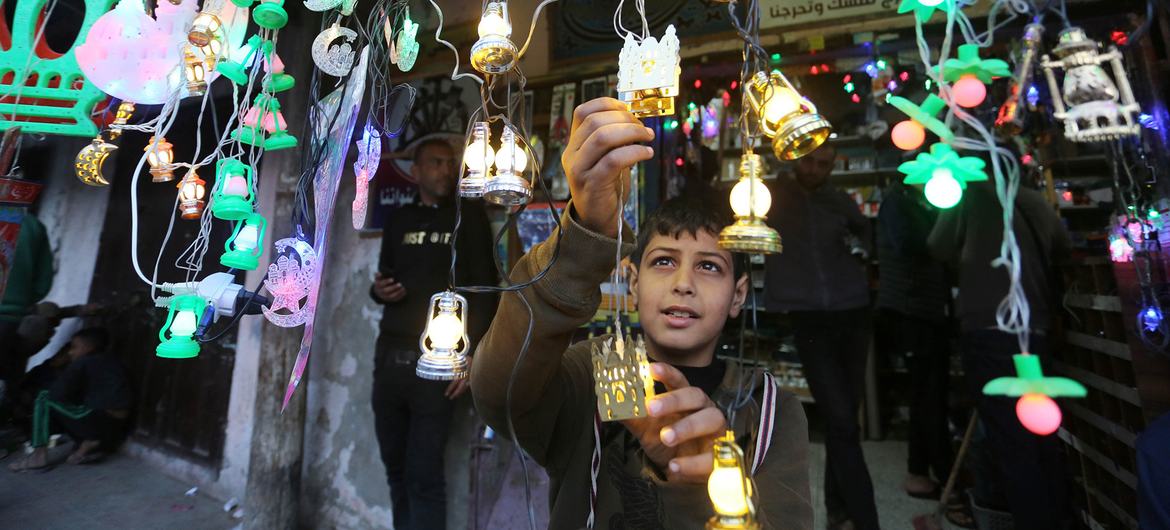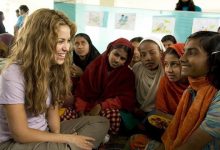Let’s Join Forces to Stand up Against the Rise of Islamophobia, Urges UN
The new resolution, tabled by Pakistan, calls for, among other things, concerted action to fight ongoing violence against Muslims and requests the UN Secretary-General to appoint a special envoy to combat Islamophobia.
The world body created the International Day through a resolution adopted following attacks on two mosques Christchurch, New Zealand, that left 51 people dead on this day in 2019.
Prior to adopting the new resolution, by a vote of 113 in favour to none against, with 44 abstentions, a divided Assembly rejected by a close margin two amendments proposed by a group of European nations.
The proposals would have replaced key language in the resolution, including calling for a focal point instead of a UN special envoy and removing references to the desecration of the Quran.
Online hate speech ‘fuelling real-life violence’
The UN chief on Friday said “divisive rhetoric and misrepresentation are stigmatising communities” and everyone must unite to combat intolerance, stereotypes and bias.
“Online hate speech is fuelling real-life violence,” Secretary-General António Guterres said in a statement, emphasising that digital platforms must moderate hateful content and protect users from harassment.
Institutional discrimination and other barriers are violating the human rights and dignity of Muslims, and much of this disturbing trend is part of a wider pattern of attacks against religious groups and vulnerable populations, also including Jewish people, minority Christian communities and others, he added.
“We must confront and root out bigotry in all its forms,” he declared. “Leaders must condemn inflammatory discourse and safeguard religious freedom. “Together, let us commit to promoting mutual respect and understanding, foster social cohesion and build peaceful, just and inclusive societies for all.”
‘Faith literacy’ must combat religion-based hate
In Geneva, Volker Türk, UN High Commissioner for Human Rights (OHCHR), said all forms of religious hatred and intolerance are unacceptable.
“The message today is perhaps more urgent than ever: we are all well past the hour to restore peace, tolerance and respect,” he said. “We know that fear breeds hate, ignorance and distrust of the other.”
“Islamophobia has stolen lives”, dehumanising entire communities and sparking “torrents of hate speech, magnified by social media”, he said, citing multiple reports on “huge spikes” in Islamophobic incidents amid the current conflict in the Middle East, with a nearly 600 per cent increase in some countries in North America and Europe.
Tweet URL
States must record such incidents and urgently step up their efforts to combat intolerance against people based on religion or belief using the many available tools at their disposal, including the OHCHR guide to developing anti-discrimination legislation.
“Faith literacy – in other words, knowledge and understanding about the values of each religion and belief – is also crucial,” Mr. Türk said, urging States to include it as part of comprehensive training initiatives on combating religious hatred for law enforcement officers and the judiciary, faith-based actors, teachers and media professionals.
Anti-Muslim hate spikes
Also in Geneva, Nassima Baghli, Permanent Observer of the OIC, hosted a commemorative event on Friday, saying that “Islamophobia is on the rise following the Israeli aggression on Gaza”.
Citing recent anti-Muslim incidents, she pointed to cases several months ago of the desecration of the Quran.
“Discrimination and stereotypes based on religion or belief are doing a lot of harm as they dehumanise people and prevent them from enjoying their rights,” Ms. Baghli said.
“We need to combat these scourges with great resolve with all the tools at our disposal,” she said. “Our common goal is to promote mutual understanding and respect for all.”

© UNRWA
As millions around the world start observing the holy month of Ramadan, sadly in Gaza and across the region, many will mark this month facing conflict, displacement and fear.
UN rights experts: Nobody should fear having a religion
UN independent rights experts raised a range of concerns in a statement issued on Friday, stressing that “States and faith-based actors have human rights responsibilities, and they have to step in to counter such violations” in line with the Rabat Plan of Action and the UN Faith for Rights framework and the #Faith4Rights toolkit to encourage respect for religious diversity.
“Across the world, we have witnessed attacks on mosques, cultural centres, schools and even private property belonging to Muslims,” said the Human Rights Council-appointment experts, who are not UN staff and do not receive a salary.
“During this holy month of Ramadan, we are appalled at the continued refusal by Israel to allow adequate humanitarian assistance and food aid to be provided to the mainly Muslim civilian population in Gaza despite the widespread hunger and signs of severe malnutrition,” the experts said, also raising serious concerns about undue restrictions imposed on access to the Al Aqsa Mosque in Jerusalem and the destruction of a significant number of places of worship in Gaza.
“Nobody should suffer fear for having or manifesting their religion or belief,” they said. “Everyone should feel safe and benefit from the equal protection of their human rights, which must be guaranteed by all States.”
Nora Chambers, an acclaimed journalist with a focus on global affairs and humanitarian issues, has dedicated over twenty years to reporting from conflict zones worldwide. Her work has spotlighted marginalized communities and highlighted urgent international concerns.




Does the newly adopted resolution include specific measures to address the root causes of Islamophobia and prevent future incidents of violence?
Yes, the newly adopted resolution not only condemns ongoing violence against Muslims but also emphasizes the need for addressing the root causes of Islamophobia to prevent future incidents of violence. It calls for concerted action and the appointment of a special envoy by the UN Secretary-General to combat this rising issue. It’s crucial for everyone to unite in fighting intolerance and bias to create a safer and more inclusive world for all communities.
Do you think the creation of a special envoy is the most effective way to combat Islamophobia, or should there be alternative approaches considered?
As a strong advocate for human rights, I believe that the appointment of a special envoy is a crucial step in addressing and combating Islamophobia. This dedicated individual can focus on implementing specific strategies and initiatives to counter discrimination and promote understanding. While alternative approaches should also be explored, having a designated envoy sends a clear message of commitment and support in the fight against intolerance and bias. Unity and collaboration are key in this effort.
Do you think appointing a special envoy is the most effective way to combat Islamophobia, or should there be a different approach?
Appointing a special envoy is a crucial step in combating Islamophobia. This designated representative will play a pivotal role in raising awareness, addressing discrimination, and advocating for policies to protect the rights of Muslims globally. It is essential to have a focused and dedicated individual working towards eradicating intolerance and promoting acceptance. Let’s support this initiative and stand united against hate.
How effective do you think appointing a special envoy will be in combating Islamophobia globally?
Appointing a special envoy can be a crucial step in addressing and combating Islamophobia globally. This dedicated representative can work towards promoting understanding, raising awareness, and fostering dialogue to tackle stereotypes and biases effectively. It sends a strong message of solidarity and commitment towards combating intolerance and discrimination. Let’s hope this initiative leads to positive change and unity in the face of rising Islamophobia.
As an advocate for human rights, I strongly believe that the rise of Islamophobia is a dangerous trend that must be addressed promptly. It’s crucial for all nations to come together and stand against any form of discrimination or violence targeting Muslim communities. Online hate speech only exacerbates real-life aggression, and it’s our collective responsibility to combat intolerance and protect the rights and dignity of all individuals, regardless of their religious beliefs. The UN’s resolution is a step in the right direction towards fostering inclusivity and understanding among different communities.
Does the resolution address the root causes of Islamophobia and how it plans to combat them effectively?
Hi EmmaJohnson, the resolution aims to combat Islamophobia by calling for concerted action to fight ongoing violence against Muslims and appointing a special envoy to address the issue. It emphasizes the need to combat online hate speech, which fuels real-life violence, and to unite against intolerance, stereotypes, and bias. While it may not address all root causes, it represents a step towards promoting tolerance and protecting the human rights and dignity of Muslims.
It is crucial that we come together to address the rise of Islamophobia and combat online hate speech. Everyone must stand against intolerance and protect the rights and dignity of Muslims, as well as other vulnerable populations.
It’s crucial that we all come together to condemn Islamophobia and stand up against discrimination and hatred. Online hate speech not only fuels violence but also perpetuates stereotypes and divides communities. The UN’s resolution is a step in the right direction, but we must continue to actively combat intolerance in all its forms.
It’s crucial that we all join forces to combat Islamophobia. Online hate speech is a significant factor fueling real-life violence, and it’s imperative that digital platforms take actions to moderate hateful content. Let’s stand united against intolerance and stereotypes, and work towards a world free from discrimination and bias.